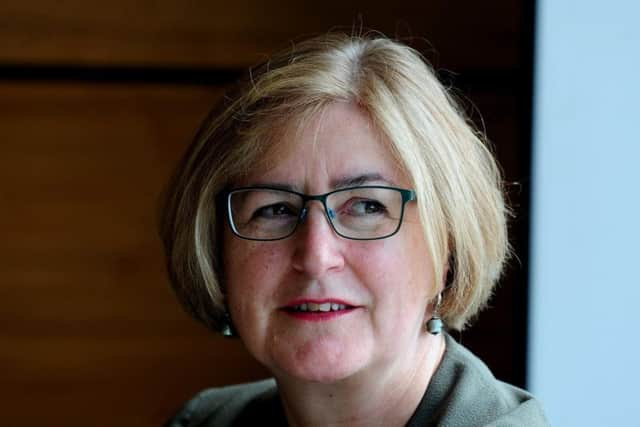Doncaster has one of the highest rates in England for secondary school exclusions


The borough is in the top ten for the number of fixed period exclusions received by secondary school students.
In the school year 2015-16, there were 5,588 fixed period exclusions in Doncaster - 30.72 per cent of the total secondary school population in the area.


Advertisement
Hide AdAdvertisement
Hide AdOfsted has pinpointed eight councils across the North East, Yorkshire and the Humber - including Doncaster, Sheffield, Barnsley and Rotherham - with unusually high rates of pupil exclusions in 2015/16.
In Doncaster all the secondary schools are now academy and council bosses said a new attendance strategy had recently been launched to encourage higher attendance rates
In Sheffield, 18.75 of all pupils were excluded, equivalent to 5,688 being given one or more fixed period exclusions.


Barnsley had a rate of 11.23 per cent, with 1,279 given exclusions, while Rotherham had a rate of 20.19 per cent, equivalent to 3,687 pupils.
Advertisement
Hide AdAdvertisement
Hide AdOfsted’s regional director for the North East and Yorkshire and the Humber, Cathy Kirby, will write to headteachers to raise her concerns about their rates of fixed-period exclusions and call on inspectors to look very carefully at schools’ use of exclusion when making judgements about leadership and management and pupils’ behaviour.
She said: "I fully appreciate variations between individual secondary schools and recognise that there may be valid reasons for schools to exclude pupils.
"But it is difficult to understand why fixed-period exclusion should be so much more necessary in these eight local authorities compared with others.
“Schools should only ever use exclusions as a last resort. If not properly applied, being removed from school can disrupt a child’s education and affect their future life chances.
Advertisement
Hide AdAdvertisement
Hide Ad“So I am asking inspectors to look very carefully at the use of exclusion in areas with high rates compared with national and regional figures. We want to be certain that pupils are being removed for the right reasons.”
In her annual report, Her Majesty’s Chief inspector Amanda Spielman stated that she absolutely supports a school’s right to exclude pupils, but that it must only be used when necessary. For example when their behaviour is violent, threatening towards teachers or when it affects other pupils’ learning.
A fixed-period exclusion means a pupil is barred from attending school for a set period of time, which can be anything from part of a school day up to a maximum of 45 days within a single academic year. This does not have to be continuous; pupils can be excluded for more than one fixed period.
Damian Allen, director of people at Doncaster Council, said: “We welcome the focus that Ofsted are placing on this issue and we will continue to work with all stakeholders to reduce the unacceptably high levels of fixed term exclusions in some of our secondary academies. It is important to note that our young people are no better or worse behaved than children in other areas.
Advertisement
Hide AdAdvertisement
Hide Ad“As a council, we constantly challenge levels of fixed term exclusions in our secondary academies.
"We see fixed term exclusion as a last resort when all other sanctions have failed although we recognise that there are rare occasions when a fixed term exclusion is warranted.
“We are currently consulting on a wide ranging strategic review of behaviour and have recently launched a new attendance strategy to encourage higher attendance rates particularly in our secondary academies.
"Doncaster is now designated as a Social Mobility Opportunity Area with the main goal being to improve outcomes for our disadvantaged children and young people.
"A key focus is to improve attendance and prevent exclusions so they get the best possible education and improved life chances.”
